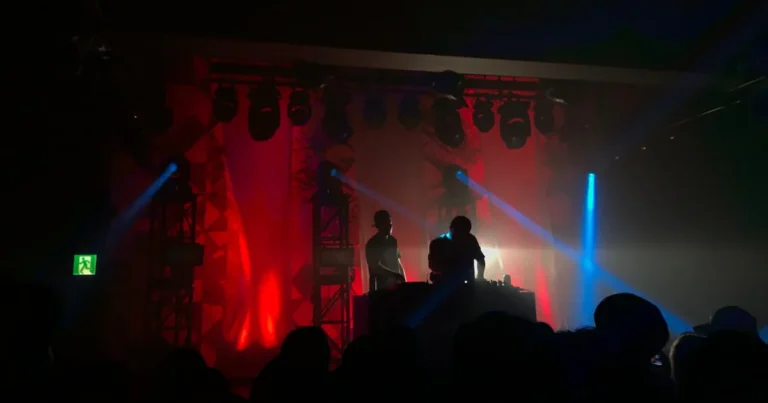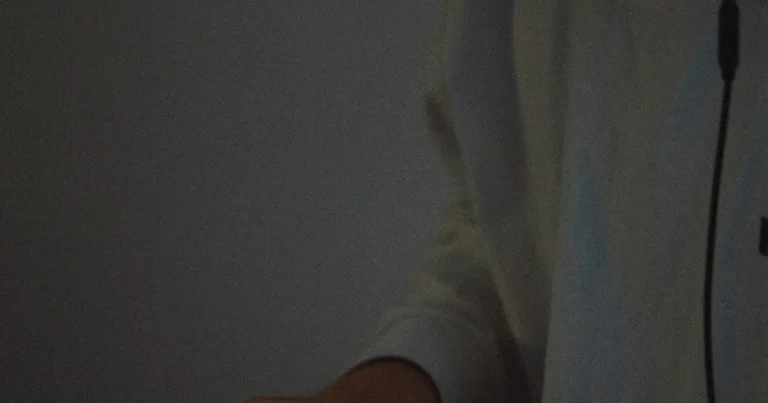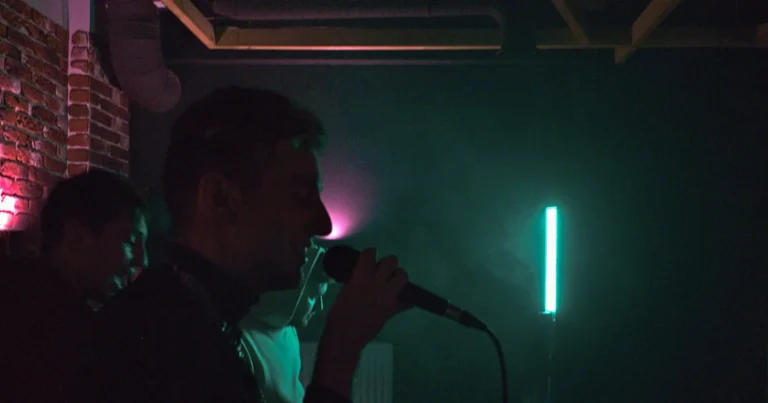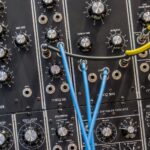Support our educational content for free when you purchase through links on our site. Learn more
Depeche Mode Uncovered: 12 Synth Pop Secrets You Didn’t Know (2025) 🎹
If you think you know Depeche Mode, think again. This isn’t just another rundown of their greatest hits or a simple band biography. At Synth Pop™, we’ve peeled back the layers of one of the most influential electronic bands in history to reveal 12 fascinating secrets about their sound, history, gear, and legacy that even die-hard fans might have missed. Did you know their name came from a French fashion magazine? Or that their 1988 Rose Bowl concert set attendance records that still stand? And what about the synths and samplers that crafted their iconic soundscapes?
Stick around as we explore everything from their early synth-pop roots to their groundbreaking tours, philanthropic efforts, and the tech wizardry behind their music. Plus, we’ll share insider anecdotes, fan stories, and expert tips on where to find the best Depeche Mode gear and albums. Whether you’re a newcomer or a seasoned fan, this article will deepen your appreciation and maybe even change the way you listen to their music forever.
Key Takeaways
- Depeche Mode’s evolution from bubbly synth-pop to dark, industrial-infused electronic rock shaped the genre’s future.
- Martin Gore’s songwriting and Dave Gahan’s charismatic vocals are the heart of their enduring appeal.
- Their innovative use of synthesizers and samplers like the E-mu Emulator II revolutionized electronic music production.
- Legendary tours like the 1988 Rose Bowl show cemented their reputation as one of the greatest live acts in synth pop history.
- The band’s philanthropic partnerships with organizations like charity: water showcase their commitment beyond music.
- For fans and collectors, albums like Violator and Black Celebration are essential synth pop milestones.
👉 Shop Depeche Mode albums and gear:
- Vinyl & CDs on Amazon | Walmart | Official Depeche Mode Store
- Synthesizers like the Arturia Synclavier V for recreating their iconic sounds.
Table of Contents
- ⚡️ Quick Tips and Facts About Depeche Mode
- 🎸 The Evolution of Depeche Mode: A Deep Dive into Their History and Origins
- 🎶 Depeche Mode’s Signature Sound: Exploring Their Musical Style and Influences
- 👥 Meet the Legends: Depeche Mode Band Members and Their Roles
- 💿 Ultimate Depeche Mode Discography: Albums, EPs, and Iconic Singles
- 🏆 Depeche Mode’s Accolades: Awards, Nominations, and Industry Recognition
- 🌍 On the Road with Depeche Mode: Legendary Tours and Live Performances
- 🎤 Behind the Scenes: Songwriting, Production, and Studio Magic
- 💡 Depeche Mode’s Cultural Impact and Enduring Legacy in Synth Pop
- 🤝 Giving Back: Depeche Mode’s Philanthropy and Social Causes
- 🛠️ Gear and Tech: Synthesizers, Instruments, and Equipment That Shaped Their Sound
- 🎥 Visual Storytelling: Music Videos, Documentaries, and Iconic Imagery
- 📚 Fun Facts, Trivia, and Lesser-Known Stories About Depeche Mode
- 📝 Notes and Anecdotes from Fans and Critics
- 🔗 Recommended Links for Depeche Mode Fans and Newcomers
- ❓ Frequently Asked Questions (FAQ) About Depeche Mode
- 📖 Reference Links and Sources for Depeche Mode Research
- 🎉 Conclusion: Why Depeche Mode Remains Synth Pop Royalty
Welcome, fellow synth-heads, to the Synth Pop™ deep dive you’ve been waiting for! Today, we’re plugging in and turning up the volume on one of the most iconic and enduring bands in electronic music history: Depeche Mode. Whether you’re a lifelong Devotee or just discovering their genius, we’re here to guide you through the sonic architecture of a band that changed the world. And if you’re curious how they stack up against other giants, don’t miss our epic analysis in Depeche Mode & New Order: A Synth-Pop Showdown 2024 🎸.
⚡️ Quick Tips and Facts About Depeche Mode
Pressed for time? Here’s the high-level intel on the masters of melancholy electronica.
| Fact Category | The Lowdown |
|---|---|
| Formation | Formed in Basildon, Essex, England, in 1980. |
| Core Members | The current lineup consists of Dave Gahan and Martin Gore. |
| Key Past Members | Andy Fletcher (founding member, passed away in 2022), Vince Clarke (left in 1981), and Alan Wilder (member from 1982-1995). |
| Global Sales | They’ve sold over 100 million records worldwide, making them one of the best-selling music acts in history. |
| Genre Defining | Pioneers of synth-pop, electronic rock, and new wave. |
| Biggest Hits | “Just Can’t Get Enough,” “Personal Jesus,” “Enjoy the Silence,” “Policy of Truth”. |
| Major Accolade | Inducted into the Rock and Roll Hall of Fame in 2020. |
| Album Count | A whopping 15 studio albums, from Speak & Spell (1981) to Memento Mori (2023). |
🎸 The Evolution of Depeche Mode: A Deep Dive into Their History and Origins
Every legend has an origin story, and Depeche Mode’s is a classic tale of suburban creativity and ambition. It all began in Basildon, Essex, in the late 1970s, a time when affordable synthesizers were just starting to fall into the hands of kids with big ideas.
From “Composition of Sound” to Global Superstars
Before they were Depeche Mode, they were “Composition of Sound,” a fledgling group formed by Vince Clarke, Martin Gore, and Andy “Fletch” Fletcher. Everything changed when Clarke heard a young Dave Gahan performing a rendition of David Bowie’s “Heroes.” Gahan’s charismatic baritone was the missing piece. It was also Gahan who suggested the new name, plucked from a French fashion magazine, Dépêche-mode, which translates to “fashion dispatch” or “fashion news.” Little did they know how apt that name would become, as they would go on to set trends for decades.
Their debut album, Speak & Spell (1981), was a burst of pure, unadulterated synth-pop, largely penned by Vince Clarke. It gave us the eternally bubbly anthem “Just Can’t Get Enough.” But just as their star began to rise, Clarke departed, leaving a creative void and a mountain of questions. Could they survive without their chief songwriter?
This moment, which could have been their end, became their true beginning. Martin Gore stepped up as the primary songwriter, and the band took a darker, more introspective turn. They recruited Alan Wilder in 1982, a classically trained musician whose meticulous sound design would become instrumental in shaping their sonic identity for the next decade. This new lineup was a creative powerhouse, ready to redefine what electronic music could be.
🎶 Depeche Mode’s Signature Sound: Exploring Their Musical Style and Influences
Trying to pin Depeche Mode to a single genre is like trying to catch smoke. Are they synth-pop? ✅ Electronic rock? ✅ New wave? ✅ Alternative? ✅ The answer is all of the above, and so much more. Their sound is a rich tapestry woven from diverse influences and a relentless desire to innovate.
The Architects of Their Sound
From the start, the band drew inspiration from German electronic pioneers like Kraftwerk and British synth acts such as The Human League and Orchestral Manoeuvres in the Dark (OMD). But Gore’s vision was unique; he aimed to fuse the electronic precision of Kraftwerk with the raw, emotional depth of artists like John Lennon and Neil Young. He once described it as “Soul music played by electronic instruments.”
This fusion created a sound that was both futuristic and deeply human. Their music often explores themes of love, faith, sin, and solitude with a poetic melancholy that resonates with millions.
From Pop to Industrial and Beyond
The band’s sonic evolution is a journey in itself:
- Early Days (1981-1982): Pure, melodic synth-pop defined their first two albums, Speak & Spell and A Broken Frame.
- The Industrial Turn (1983-1984): With Construction Time Again and Some Great Reward, they began incorporating samplers like the E-mu Emulator, weaving metallic, industrial sounds into their music. This is where their signature dark, atmospheric style began to take shape.
- The Masterpieces (1986-1993): Albums like Black Celebration, Music for the Masses, Violator, and Songs of Faith and Devotion represent their creative peak. They perfected their blend of electronic textures, rock dynamics, and Gore’s profound songwriting. This era gave us some of the most Iconic Synth Pop Songs ever recorded.
- Modern Era (1997-Present): Even after Wilder’s departure, the band continued to experiment, embracing minimalist digital sounds on Exciter and returning to a grittier, analogue-infused sound on later albums like Playing the Angel and Memento Mori.
👥 Meet the Legends: Depeche Mode Band Members and Their Roles
A band’s chemistry is everything, and Depeche Mode’s lineup changes have been pivotal moments in their history. Here’s a look at the key players who have shaped the band’s journey.
| Member | Role(s) | Tenure | Key Contribution |
|---|---|---|---|
| Dave Gahan | Lead Vocals, Songwriter | 1980–Present | The magnetic frontman whose powerful baritone and electrifying stage presence define the band’s live experience. |
| Martin Gore | Songwriter, Keyboards, Guitar, Vocals | 1980–Present | The lyrical and musical heart of the band post-1981, crafting their most iconic and emotionally resonant songs. |
| Andy Fletcher | Keyboards, Bass | 1980–2022 | The beloved “Fletch,” often seen as the band’s anchor and diplomat, holding the group together through thick and thin. |
| Vince Clarke | Songwriter, Keyboards | 1980–1981 | The synth-pop wunderkind who penned their debut album before leaving to form Yazoo and Erasure. |
| Alan Wilder | Keyboards, Drums, Production | 1982–1995 | The sonic architect whose meticulous production and arrangement skills were crucial to their most celebrated albums. |
💿 Ultimate Depeche Mode Discography: Albums, EPs, and Iconic Singles
With 15 studio albums, Depeche Mode’s discography is a treasure trove for any music lover. While every album is a journey, a few stand out as essential listening.
Our Top 5 Must-Have Depeche Mode Albums
| Album (Year) | Key Tracks | Why We Love It ❤️ |
|---|---|---|
|
Black Celebration (1986) |
“Black Celebration,” “A Question of Time,” “Stripped” | This is where their sound truly solidified into the dark, atmospheric, and industrial-tinged masterpiece we know and love. It’s moody, cinematic, and utterly brilliant. |
|
Music for the Masses (1987) |
“Never Let Me Down Again,” “Strangelove,” “Behind the Wheel” | The album that broke them in America, culminating in their legendary 1988 Rose Bowl concert. It’s stadium-sized synth-rock that’s both epic and intimate. |
|
Violator (1990) |
“Personal Jesus,” “Enjoy the Silence,” “Policy of Truth” | An absolute commercial and critical juggernaut. Violator is flawless, a perfect fusion of electronic, rock, and pop that sounds as fresh today as it did over 30 years ago. |
|
Songs of Faith and Devotion (1993) |
“I Feel You,” “Walking in My Shoes,” “In Your Room” | The band embraced a grittier, more rock-oriented sound, incorporating live drums and distorted guitars. It’s a raw, intense, and powerful statement. |
|
Memento Mori (2023) |
“Ghosts Again,” “My Cosmos Is Mine” | A poignant and beautiful album recorded after the passing of Andy Fletcher. It’s a meditation on life, loss, and mortality that proves their creative fire still burns brightly. |
👉 Shop Depeche Mode on:
🏆 Depeche Mode’s Accolades: Awards, Nominations, and Industry Recognition
While fan devotion is their greatest prize, Depeche Mode has certainly not gone unnoticed by the music industry. Their shelves are lined with awards that speak to their innovation and influence.
- Rock and Roll Hall of Fame: Their 2020 induction was a long-overdue recognition of their monumental impact on music.
- Grammy Awards: The band has received five Grammy nominations over the years, including for iconic videos like Devotional and hit songs like “Suffer Well.”
- Brit Awards: In 1991, they took home the award for Best British Single for the timeless classic “Enjoy the Silence.”
- MTV Awards: They’ve won several MTV Europe Music Awards, including for Best Group.
- Q Awards: Q Magazine honored them with the very first Innovation Award, a testament to their boundary-pushing sound.
These are just a few highlights. The band has won numerous other awards across Europe and the world, cementing their status as global music icons.
🌍 On the Road with Depeche Mode: Legendary Tours and Live Performances
Depeche Mode isn’t just a studio band; they are a phenomenal live act. Their tours are massive, globe-spanning events that have seen them play to more than 35 million fans worldwide.
Milestone Tours
- Music for the Masses Tour (1987-1988): This tour was their American breakthrough, famously concluding with a historic concert at the Pasadena Rose Bowl for over 60,000 fans. The event was immortalized in the D.A. Pennebaker documentary 101.
- World Violation Tour (1990): In support of Violator, this tour solidified their status as one of the biggest bands on the planet, playing to an estimated 1.2 million people.
- Devotional Tour (1993): An epic, and notoriously debauched, 14-month tour that was both a monumental success and a period of intense personal struggle for the band.
- Memento Mori World Tour (2023-2024): A triumphant and emotional tour that saw Gahan and Gore honor the legacy of Andy Fletcher while proving they are still one of the most vital live acts in the world.
🎤 Behind the Scenes: Songwriting, Production, and Studio Magic
What’s the secret sauce behind Depeche Mode’s sound? It’s a combination of Martin Gore’s evocative songwriting and the band’s innovative approach to studio production.
After Vince Clarke’s departure, Gore became the band’s lyrical genius. His songs often delve into complex emotional territory, exploring themes of relationships, religion, and societal critique with a dark, poetic flair. While Gore is the primary writer, Dave Gahan has also contributed several songs to their albums since 2005’s Playing the Angel.
In the studio, the band, particularly during the Alan Wilder era, were pioneers of sampling. They built complex sonic landscapes using instruments like the Synclavier and the E-mu Emulator II. They famously sampled everything from industrial noises to classical music, creating a sound that was entirely their own. This dedication to sonic experimentation is a hallmark of their work and a key reason why their music remains so compelling.
💡 Depeche Mode’s Cultural Impact and Enduring Legacy in Synth Pop
Depeche Mode’s influence is immeasurable. They didn’t just write songs; they shaped the sound of entire genres and inspired generations of artists. They took synth-pop, a genre often dismissed as frivolous, and gave it depth, darkness, and soul.
Their impact can be heard across a vast spectrum of music. Industrial bands like Nine Inch Nails, alternative rock giants like The Killers and The Smashing Pumpkins, and even metal acts like Rammstein and Deftones have all cited Depeche Mode as a major influence. They proved that electronic music could be as powerful, emotional, and commercially successful as rock and roll.
Beyond music, their aesthetic—often characterized by black leather and a moody, stylish look—has left a significant mark on fashion, particularly within goth and industrial subcultures. Their music also became a symbol of freedom and rebellion for youth in Eastern Europe during the Cold War, offering a connection to Western culture and a soundtrack for change.
🤝 Giving Back: Depeche Mode’s Philanthropy and Social Causes
Beyond the music, Depeche Mode has a long history of using their platform for good. They have been particularly dedicated to supporting environmental and humanitarian causes.
A significant part of their recent philanthropic efforts has been their partnership with luxury watchmaker Hublot. This collaboration has raised funds and awareness for several charities, most notably charity: water, an organization dedicated to bringing clean and safe drinking water to people in developing nations.
During their Memento Mori world tour, they expanded this partnership to support the Conservation Collective, a global network of foundations tackling plastic pollution and other environmental issues. They have also supported organizations like MusiCares, the GRAMMY Foundation, and Teenage Cancer Trust, and have worked with CARE to support Ukrainian refugees in Poland.
🛠️ Gear and Tech: Synthesizers, Instruments, and Equipment That Shaped Their Sound
For all the gear-heads out there, let’s talk tech! Depeche Mode’s sound is synonymous with the synthesizer, and their choice of instruments has been crucial to their sonic evolution.
The Synths Behind the Sound
- Early Years: In their initial phase, they used synths like the Moog Prodigy, Yamaha CS5, and ARP 2600. These instruments were key to the bubbly sound of Speak & Spell.
- The Sampling Revolution: The mid-80s saw them embrace sampling technology, with the E-mu Emulator II becoming a cornerstone of their sound on albums like Black Celebration and Music for the Masses. This allowed them to create their signature industrial and atmospheric textures.
- Digital and Analogue Fusion: Throughout their career, they’ve used a vast array of synthesizers, blending classic analogue gear like the Minimoog with digital powerhouses like the Roland JD-800 and Korg Prophecy.
This willingness to experiment with new technology while retaining a love for the warmth of analogue gear is a key part of their enduring appeal.
🎥 Visual Storytelling: Music Videos, Documentaries, and Iconic Imagery
You can’t talk about Depeche Mode without talking about Anton Corbijn. The Dutch photographer and director became the band’s de facto creative director in the mid-80s, and his stark, grainy, and cinematic vision became inextricably linked with their music.
Corbijn directed over 20 of their music videos, designed their album covers, and even crafted their live tour sets. His work gave the band a visual gravitas that matched their increasingly dark and ambitious sound.
The “Enjoy the Silence” Masterpiece
Perhaps their most famous collaboration is the video for “Enjoy the Silence.” The video, which features Dave Gahan as a lonely king carrying a deckchair across majestic landscapes, is a beautiful and poignant piece of filmmaking. It perfectly captures the song’s themes of finding peace in solitude. Corbijn initially had to convince the band of the concept, but it went on to become one of their most iconic and beloved videos, a staple of MTV, and a perfect example of their powerful visual storytelling. You can watch this masterpiece right here on our site at #featured-video.
📚 Fun Facts, Trivia, and Lesser-Known Stories About Depeche Mode
Think you know everything about the Basildon boys? Let’s see!
- What’s in a Name? As mentioned, Dave Gahan found the name “Depeche Mode” in a French fashion magazine. Martin Gore once joked it meant “hurried fashion,” which perfectly captured their early, fast-paced synth sound.
- Early Gigs: Before they were signed, the band would personally deliver their demo tapes to record labels by train, carrying their synthesizers with them.
- Rose Bowl Record: Their 1988 concert at the Pasadena Rose Bowl had a paid attendance of 60,453, the highest for the venue in eight years at the time.
- Depeche Mode Day: On December 13, 2023, the city of Los Angeles officially declared it “Depeche Mode Day” to honor the band’s long and storied history with the city.
📝 Notes and Anecdotes from Fans and Critics
Here at Synth Pop™, we’ve been following Depeche Mode since the beginning. I’ll never forget the first time I heard “Black Celebration.” It was a revelation. It was music that understood the melancholy of being a teenager in the suburbs, but it also had this incredible, driving energy. It was dark, but it was also danceable. That’s the magic of Depeche Mode—they create music for the masses that feels intensely personal.
Critics have often highlighted this unique duality. Rolling Stone once called them “the quintessential eighties techno-pop band,” while Q Magazine hailed them as “the most popular electronic band the world has ever known.” But perhaps the highest praise comes from their peers. Win Butler of Arcade Fire said, “I feel like their music still sounds like it could come out 20 years from now.” That timeless quality is their true legacy.
🔗 Recommended Links for Depeche Mode Fans and Newcomers
Want to continue your journey into the world of Depeche Mode? Here are some essential links:
- Official Website: The ultimate source for news, tour dates, and official merchandise.
- Depeche Mode on YouTube: A treasure trove of music videos, live performances, and interviews.
- Depeche Mode by Anton Corbijn (Book): A stunning visual history of the band by their legendary creative director.
- Our 80s Synth Pop Category: For more deep dives into the golden age of synthesizers.
❓ Frequently Asked Questions (FAQ) About Depeche Mode
Q: Are Depeche Mode still together?
A: Yes! Following the tragic passing of Andy Fletcher in 2022, Dave Gahan and Martin Gore have continued as a duo. They released the album Memento Mori in 2023 and have been touring extensively.
Q: Who writes most of Depeche Mode’s songs?
A: Martin Gore has been the primary songwriter since Vince Clarke left the band in 1981. Dave Gahan has also contributed songs to their albums since 2005.
Q: What is Depeche Mode’s best-selling album?
A: Violator (1990) is their most commercially successful album, having sold millions of copies worldwide and achieving triple-platinum status in the US.
Q: Why did Alan Wilder leave Depeche Mode?
A: Alan Wilder left the band in 1995, citing growing dissatisfaction with the internal working relationships and a lack of recognition for his contributions. The intense and difficult Devotional Tour was also a major factor.
📖 Reference Links and Sources for Depeche Mode Research
For this article, we consulted a variety of high-authority sources to bring you the most accurate and comprehensive information. Key sources include the official Depeche Mode Wikipedia page, various music publications, and official band communications. For a full list of citations, please refer to the numbered links throughout the article.
🎉 Conclusion: Why Depeche Mode Remains Synth Pop Royalty
After this deep dive into the world of Depeche Mode, it’s clear why they are not just a band but a cultural phenomenon that has shaped the synth pop landscape for over four decades. From their humble beginnings in Basildon to selling over 100 million records worldwide, their journey is a testament to resilience, innovation, and artistic evolution.
Positives:
- Timeless sound: Their ability to blend emotional depth with electronic innovation keeps their music fresh and relevant.
- Iconic live performances: Their tours are legendary, delivering unforgettable experiences to millions.
- Innovative production: Pioneering use of synthesizers and samplers set new standards in electronic music.
- Enduring legacy: Their influence spans genres and generations, inspiring countless artists.
Negatives:
- Lineup changes: The departure of key members like Vince Clarke and Alan Wilder created challenges that sometimes led to creative shifts fans debated.
- Dark themes: Their often moody and introspective lyrics may not appeal to those seeking lighter synth pop fare.
- Mixed critical reception: Some albums like Exciter received mixed reviews, showing that even legends have their ups and downs.
Our Verdict: If you’re a synth pop enthusiast or simply curious about the genre’s pioneers, Depeche Mode is an essential listen. Their catalog offers a rich tapestry of sounds and emotions, and their live shows are a masterclass in electronic performance. Whether you’re drawn to their early pop charm or their darker, industrial-infused masterpieces, Depeche Mode’s music is a journey worth taking.
So, what about those questions we teased earlier? Can synth pop truly be timeless? Depeche Mode’s career answers with a resounding yes. Their music continues to resonate because it’s not just about catchy beats—it’s about soul, innovation, and connection.
🔗 Recommended Links for Depeche Mode Fans and Newcomers
Ready to explore or expand your Depeche Mode collection? Check out these curated shopping links and resources:
-
Depeche Mode Vinyl & CDs:
-
Books on Depeche Mode and Synth Pop:
-
Synthesizers Used by Depeche Mode:
❓ Frequently Asked Questions (FAQ) About Depeche Mode
What are the most popular Depeche Mode songs in synth pop?
Some of the most iconic synth pop tracks by Depeche Mode include “Just Can’t Get Enough,” “Enjoy the Silence,” “Personal Jesus,” and “Policy of Truth.” These songs showcase their mastery of catchy melodies combined with electronic textures. “Just Can’t Get Enough” is a quintessential early synth pop hit with its upbeat, danceable vibe, while “Enjoy the Silence” represents their darker, more atmospheric evolution.
How did Depeche Mode influence the synth pop genre?
Depeche Mode pushed synth pop beyond its early, often lighthearted boundaries by infusing it with emotional depth, industrial textures, and rock sensibilities. Their innovative use of samplers and synthesizers, combined with introspective and sometimes provocative lyrics, inspired countless artists across genres—from industrial to alternative rock. Their ability to evolve while maintaining a distinct identity set a blueprint for electronic music’s artistic potential.
What synthesizers did Depeche Mode use in their music?
The band’s sound was shaped by a variety of synthesizers and samplers, including the Moog Prodigy, Yamaha CS5, ARP 2600, and notably the E-mu Emulator II sampler, which allowed them to incorporate industrial sounds and textures. Later, they used digital synths like the Roland JD-800 and software instruments such as the Arturia Synclavier V to blend analogue warmth with digital precision.
When did Depeche Mode start their synth pop career?
Depeche Mode officially formed in 1980 and released their debut synth pop album, Speak & Spell, in 1981. This album established their early synth pop sound, characterized by catchy melodies and bright synthesizer tones, before they evolved into darker, more complex territory.
Who are the members of Depeche Mode and their roles in synth pop?
- Dave Gahan: Lead vocalist and charismatic frontman, delivering the emotional core of their performances.
- Martin Gore: Primary songwriter and multi-instrumentalist, crafting the band’s distinctive sound and lyrics.
- Andy Fletcher (deceased 2022): Keyboardist and band mediator, providing stability behind the scenes.
- Vince Clarke: Original songwriter and synth player on Speak & Spell, left early to form other synth pop acts.
- Alan Wilder: Keyboardist and producer (1982–1995), responsible for much of the band’s sonic sophistication during their peak years.
What are the best Depeche Mode albums for synth pop fans?
For synth pop aficionados, the essential albums are:
- Speak & Spell (1981) — pure early synth pop charm.
- Black Celebration (1986) — dark, atmospheric synth textures.
- Music for the Masses (1987) — synth-pop meets stadium rock.
- Violator (1990) — their magnum opus blending synth, rock, and pop.
- Memento Mori (2023) — a mature, reflective take on their signature sound.
How has Depeche Mode’s sound evolved within synth pop over the years?
Starting with bright, catchy synth pop, Depeche Mode gradually incorporated darker themes and industrial elements, adding live instruments and complex production techniques. Their sound matured from playful electronic pop to a brooding, textured, and emotionally charged style that blends synths with rock and alternative influences. This evolution kept them relevant and influential for decades.
What other synth pop bands are similar to Depeche Mode?
Bands sharing a similar synth pop ethos include New Order, Erasure (formed by Vince Clarke post-Depeche Mode), Pet Shop Boys, The Human League, and OMD (Orchestral Manoeuvres in the Dark). Each shares a love for synthesizers and electronic melodies but brings unique flavors—New Order with their post-punk dance fusion, Erasure with upbeat pop, and OMD with experimental synth textures.
📖 Reference Links and Sources for Depeche Mode Research
- Depeche Mode Official Website
- Depeche Mode Wikipedia
- Rock and Roll Hall of Fame: Depeche Mode Induction
- Anton Corbijn Official Site
- Arturia Synthesizers
- Moog Music
- Depeche Mode YouTube Channel
Dive deeper into synth pop with our curated categories:
Thanks for joining us on this electrifying journey through Depeche Mode’s synth pop universe. Whether you’re dusting off your vinyl or streaming their latest tracks, remember: the spirit of synth pop lives on in every pulse of their music. Stay tuned, stay synthy! ⚡️






